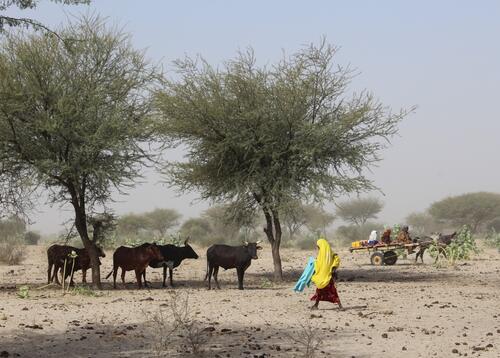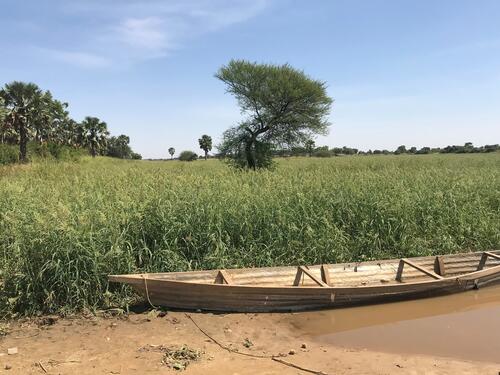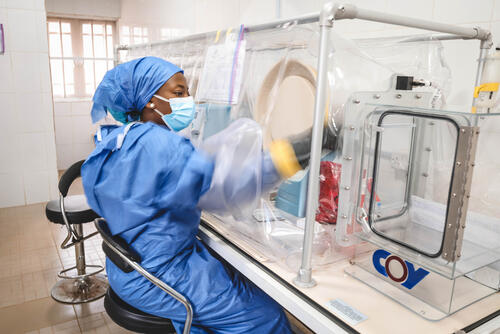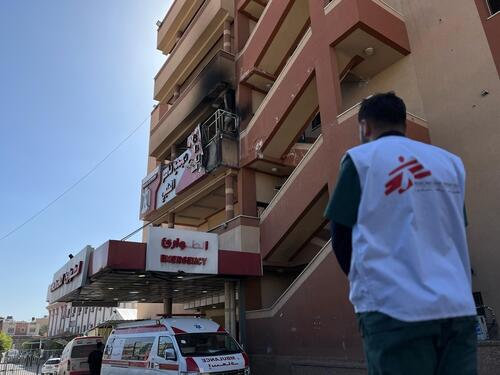Khadidja Iba sits on a colourful mat in the waiting area of a therapeutic feeding centre that Médecins Sans Frontières (MSF) has set up at a health centre in Massakory, a small town in Chad’s Sahel belt. The mother of six has walked for two hours to bring her youngest child, nine-month-old Sara, for a follow-up visit. The child has been enrolled in MSF’s nutrition programme for a month.
After an assessment with MSF’s health staff, Khadidja receives a week’s worth of bright red packages of Plumpy’Nut, a high-energy peanut paste used to treat malnutrition, that she will feed the baby with until her next assessment the following week.
It’s a continuous crisis... At the same time, funding for nutrition in Chad has gone down. We need a better aid response to prevent children from dying from malnutrition.Ibrahim Barrie, MSF medical team leader
Malnutrition now a chronic crisis
MSF teams launched a nutrition response in Chad’s Hadjer Lamis province in September 2021, after receiving an alert about a significant number of severe acute malnutrition cases in the area – more than 28,000 predicted for 2021 – and learning that only one of the province’s five health districts was receiving support.
Malnutrition is a recurrent, chronic crisis in Chad, and especially affects children under five and pregnant and lactating women. The causes of malnutrition are complex, and include poor harvests, inadequate dietary choices as well as socio-cultural factors. In 2021, the situation was exacerbated by an unusually short rainy season.
“There was very little rain last year. It was worse than any year I remember,” says Khadija. “We harvested hardly anything. We need to buy vegetables at the market, but everything costs almost double now. We don’t have enough to eat.”
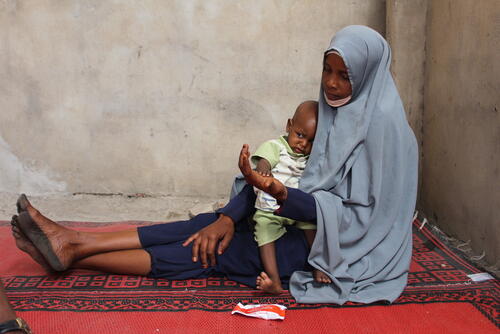
We are afraid of the future. All we can do is wait for the next rains. If the rain abandons us another time, we don’t know what to do.Osman Abakar, village resident near Massakory, Chad
Lack of water adds to crisis
Food insecurity is not the only worry of people living in this arid, inhospitable region. An even bigger concern for many is a lack of water.
“We have two wells in my village, but it’s not enough for all the people and animals. I have to pump for five to six minutes to get water,” says Khadidja Mahamat. “The water tastes bad; we mostly give it to the animals. To get drinking water, I go by donkey to another village. It takes me one-and-a half hours each way.”
The bad quality of the water causes diarrhoea and other health issues, increasing the risk for children of being malnourished.
How MSF is responding to the crisis
MSF teams treat children in therapeutic feeding centres in seven health districts of the province and support the treatment of severely malnourished children in Massakory hospital. Our teams also visit remote villages in the area to teach mothers how to prevent and detect malnutrition in children. Health promoters show mothers how to use MUAC bands, a colour-coded paper band that is wrapped around a child’s arm and indicates if a child is healthy, slightly or severely malnourished.
When our teams arrive, they find mostly women, children and older men. Many younger men have left to find work in other parts of Chad or in neighbouring countries such as Cameroon, Niger and Libya. Others have taken their cattle to the south of the country, in search of better pastures.
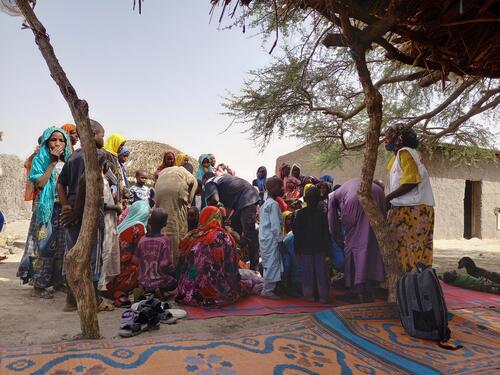
Most men will return for the next planting period. This temporary migration is a coping mechanism that is not new, but Osman Abakar says that the young men have left earlier than usual due to the bad harvest.
“We are afraid of the future,” Osman says. “All we can do is wait for the next rains. If the rain abandons us another time, we don’t know what to do.”
MSF received the alert relatively late, after the most acute phase of malnutrition in Hadjer Lamis, and while the team has treated more than 1,600 children in outpatient therapeutic feeding centres in the first 15 weeks of our activities, the team is also preparing for the next cycle.
Fears for the future
“There is some fear that the worst is yet to come, that the hunger gap will start earlier than usual and that it could be longer and more severe,” says Ibrahim Barrie, MSF medical team leader. “It’s a continuous crisis, no longer just a hunger gap.”
“At the same time, funding for nutrition and food security in Chad has gone down,” continues Barrie. “We need a better aid response to prevent children from dying from malnutrition.”
The Sahel region is considered one of the world’s most vulnerable to climate change, with rising temperatures, erratic rainfalls and increasing desertification. Over the last 10 years, Chad’s Saharan and Sahelian zones have spread 150 kilometres south, resulting in reduced farming and pasture areas.



